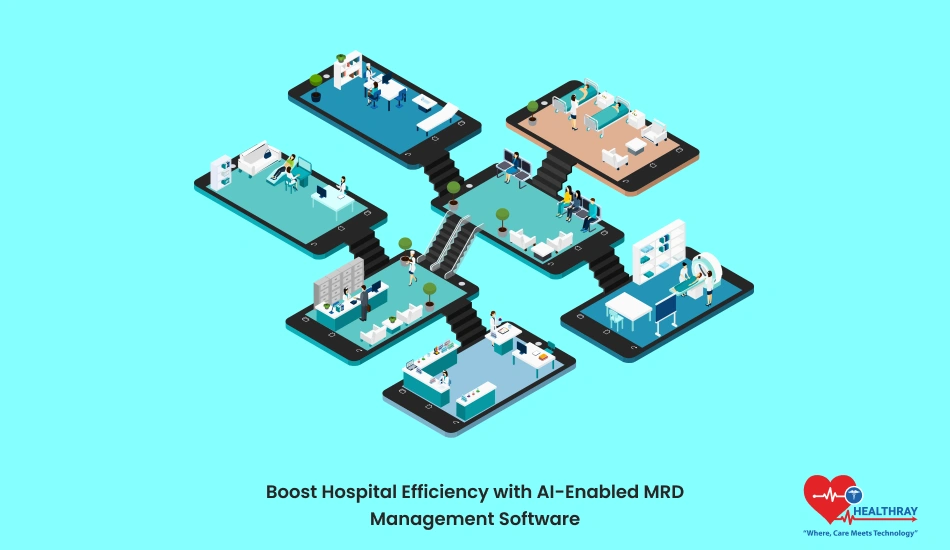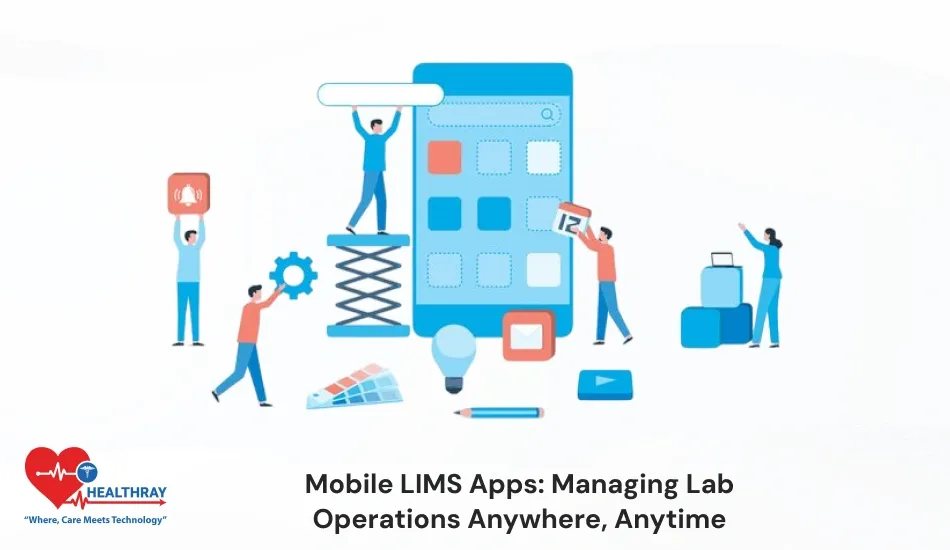Hospitals face constant challenges with managing patient data effectively, keeping administrative tasks under control, and ensuring seamless communication among departments. AI-enabled MRD (Medical Records Department) management software steps in as a game-changer, offering solutions to these pain points. It automates record-keeping, streamlines workflows, and boosts hospital efficiency while maintaining data security.
But that’s just the start. This post will explore how AI can transform your hospital’s operations, highlight the features to look for in an hospital management software tool, and showcase real-world success stories. By the end, you’ll have a clear understanding of why this technology is essential for modern healthcare.
The Role of AI in Boosting Hospital Efficiency
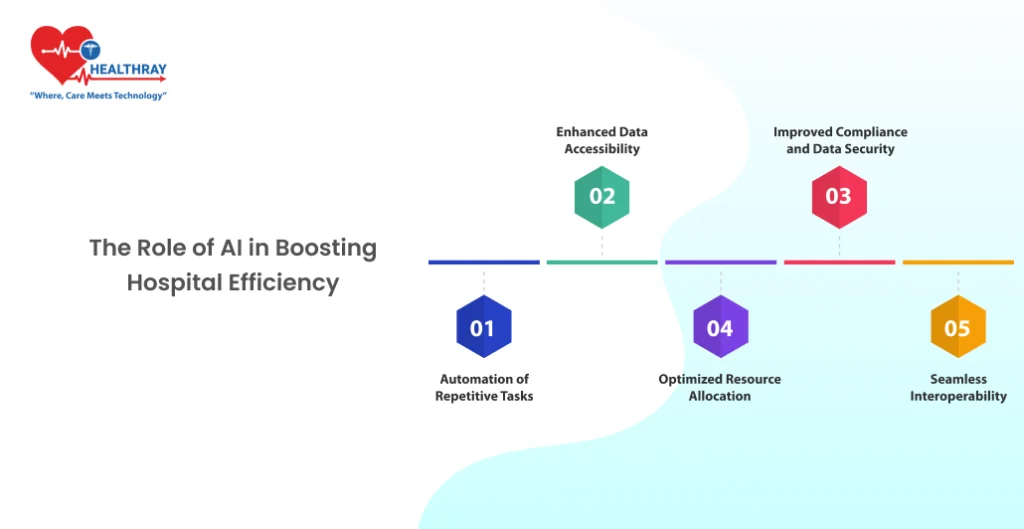
AI is reshaping the way hospitals operate by automating processes, analyzing vast amounts of data, and enhancing decision-making. In the context of MRD management, AI significantly reduces manual work, making operations smoother and faster. Here’s how it contributes to hospital efficiency:
Automation of Repetitive Tasks
Managing patient records is often time-consuming and prone to errors when done manually. AI-enabled systems take over repetitive tasks like data entry, categorization, and retrieval. This allows staff to focus on patient care instead of paperwork.
Enhanced Data Accessibility
With AI-driven MRD Management Software, accessing patient information becomes instantaneous. Doctors and administrators can retrieve records with minimal effort, ensuring quick decision-making and reducing delays in treatments.
Improved Compliance and Data Security
Hospitals must adhere to strict regulations regarding data handling. AI tools come with built-in compliance frameworks and advanced security features, like encryption and anomaly detection, safeguarding sensitive patient information.
Optimized Resource Allocation
AI systems analyze trends in hospital operations, helping administrators allocate resources more effectively. For instance, predicting peak admission times can ensure staffing levels meet patient needs without overburdening the team.
Seamless Interoperability
Modern MRD management tools integrate seamlessly with other hospital systems, such as billing and diagnostic platforms. AI ensures smooth communication between these systems, minimizing errors and redundancy.
Key Features to Look for in AI-Enabled MRD Management Software
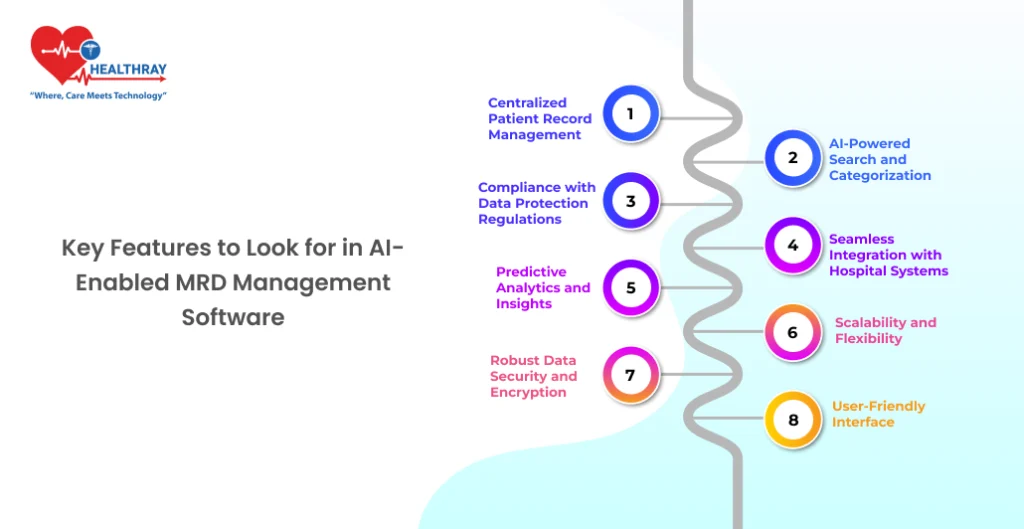
Choosing the right AI-enabled MRD management software is crucial to ensure it aligns with the hospital’s operational goals. Here are the must-have features that can make a significant impact:
Centralized Patient Record Management
The software should organize patient records in a single, easily accessible system. Centralization eliminates duplication, ensures consistency, and speeds up the retrieval process, especially during emergencies.
AI-Powered Search and Categorization
Advanced AI algorithms enable the system to categorize patient data accurately and offer intuitive search capabilities. This ensures doctors and staff can find the information they need in seconds, reducing delays in decision-making.
Compliance with Data Protection Regulations
The software must comply with global and local healthcare regulations such as HIPAA, GDPR, or equivalent standards. Built-in compliance ensures that patient data is handled securely and ethically.
Seamless Integration with Hospital Systems
AI-powered MRD Software should integrate effortlessly with existing hospital infrastructure, including Electronic Health Record systems, billing platforms, and diagnostic tools. This integration minimizes data silos and ensures a smooth workflow.
Predictive Analytics and Insights
A powerful feature of AI is its ability to provide predictive insights. For example, the software can forecast admission trends or alert staff about potential data inconsistencies, improving overall hospital planning and operation.
Scalability and Flexibility
Hospitals vary in size and scope, so the software must be scalable to handle growing data volumes. It should also offer customization options to meet specific operational requirements.
Robust Data Security and Encryption
With patient data being sensitive, robust encryption methods, role-based access, and real-time anomaly detection are essential features. These protect against breaches and ensure only authorized personnel access records.
User-Friendly Interface
A straightforward, intuitive interface ensures that all staff members, regardless of technical expertise, can use the system effectively without extensive training.
Real-World Applications: Success Stories of AI-Enabled MRD Systems in Hospitals
AI-enabled MRD management software isn’t just a futuristic concept; it’s actively transforming hospital operations today. Here are some success stories that demonstrate its real-world impact:
Streamlined Operations at a Multi-Specialty Hospital
A renowned multi-specialty hospital in Mumbai implemented AI-driven MRD management software to address inefficiencies in patient data retrieval. With automated record categorization and intelligent search capabilities, the hospital reduced retrieval times by over 60%. This allowed doctors to spend more time with patients and less on administrative tasks.
Improved Data Security at a Teaching Hospital
A teaching hospital in Chicago faced challenges with compliance and data breaches. After adopting an AI-enabled system, the hospital leveraged built-in encryption and anomaly detection features. This not only enhanced data security but also ensured seamless audits, saving them substantial fines and operational disruptions.
Enhanced Patient Turnaround at a Rural Hospital
A rural hospital in Kenya implemented AI-powered MRD software to overcome challenges with resource constraints and patient data overload. The system provided predictive analytics that forecasted patient inflow, enabling better staffing and resource allocation. This led to a 40% reduction in patient wait times.
Cost Savings in a Private Clinic
A private clinic in Sydney integrated an AI-driven MRD solution with its billing and diagnostic systems. The interoperability minimized errors in billing and diagnostics reporting, leading to a 20% reduction in administrative costs within the first six months of implementation.
Data Accuracy at a Government Hospital
A government hospital in Germany struggled with outdated records and frequent errors. By deploying AI-enabled MRD software, the hospital achieved 99% accuracy in patient data and eliminated duplicate entries. This improved operational efficiency and boosted patient trust.
The Future of AI in Hospital Efficiency
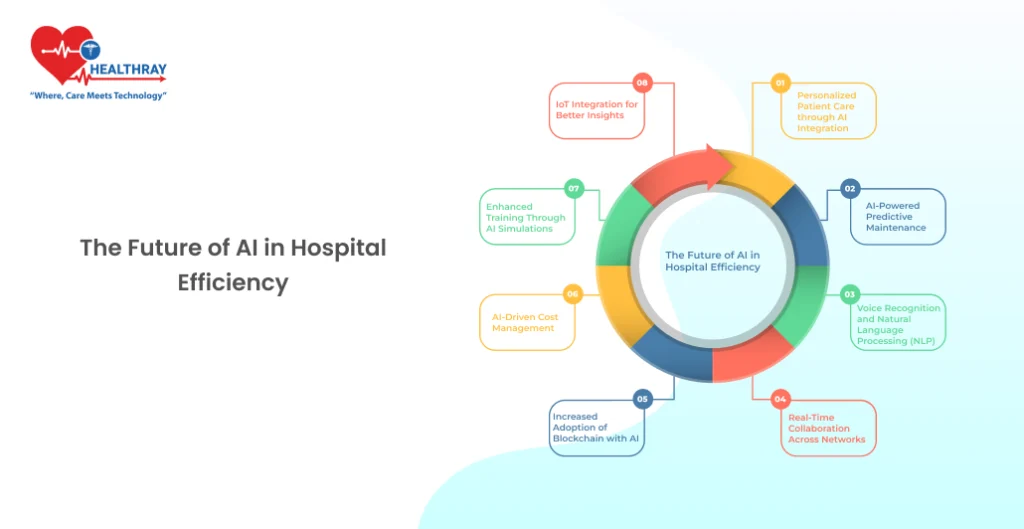
AI in MRD management is just the beginning of a broader transformation in healthcare operations. Hospitals Software are rapidly adopting emerging AI-driven technologies that promise to redefine efficiency, data handling, and patient care. Here’s a glimpse into what the future holds:
Personalized Patient Care through AI Integration
AI will soon integrate seamlessly with MRD systems to provide real-time insights for personalized treatment plans. By analyzing patient records, historical data, and diagnostic results, AI can recommend tailored healthcare strategies, improving outcomes.
AI-Powered Predictive Maintenance
Future MRD systems will leverage predictive analytics to maintain system uptime. This includes identifying potential hardware failures or data bottlenecks before they occur, ensuring uninterrupted access to critical patient information.
Voice Recognition and Natural Language Processing (NLP)
Advanced AI-powered voice recognition will enable doctors and staff to update and retrieve patient records hands-free. NLP will further enhance the system’s ability to understand and process medical terminologies, improving documentation accuracy.
Real-Time Collaboration Across Networks
AI will support the creation of interconnected hospital networks, allowing multiple facilities to share and access patient data securely. This will facilitate better coordination in cases where patients require care across different institutions.
Increased Adoption of Blockchain with AI
Blockchain technology, when paired with AI, will enhance data security and transparency. This combination ensures that patient records are tamper-proof while making data exchange efficient and secure.
AI-Driven Cost Management
Future MRD systems will not only improve data handling but also help hospitals manage budgets by analyzing operational costs. AI can identify cost-saving opportunities, optimize procurement, and predict future financial needs.
Enhanced Training Through AI Simulations
Hospitals will leverage AI simulations integrated with MRD systems for staff training. This allows administrators and healthcare workers to practice using the software in virtual environments, improving real-world adoption and reducing errors.
IoT Integration for Better Insights
The Internet of Things (IoT) combined with AI will enable MRD systems to collect and process data from connected medical devices. This ensures that patient data remains comprehensive and up-to-date, even as devices generate information in real time.
Conclusion
AI-enabled MRD management software is no longer just a tool; it’s a necessity for modern hospitals striving for operational excellence. By automating tasks, improving data accuracy, and enhancing patient care, this technology positions hospitals for a more efficient and patient-centered future.
Ready to take your hospital to the next level? It’s time to explore the possibilities AI can bring to your MRD operations.
